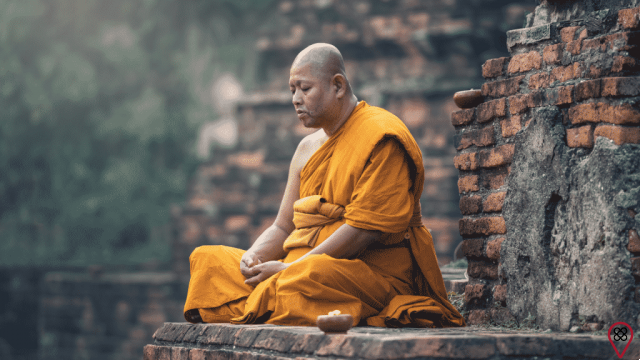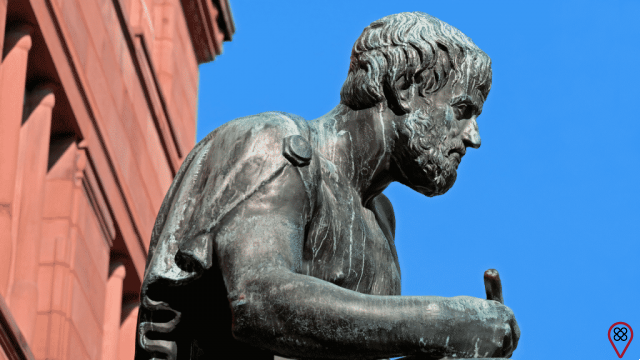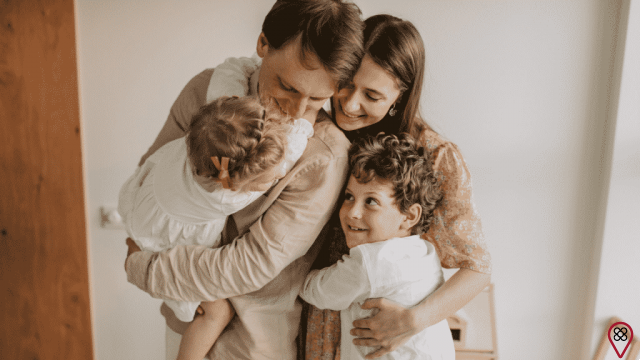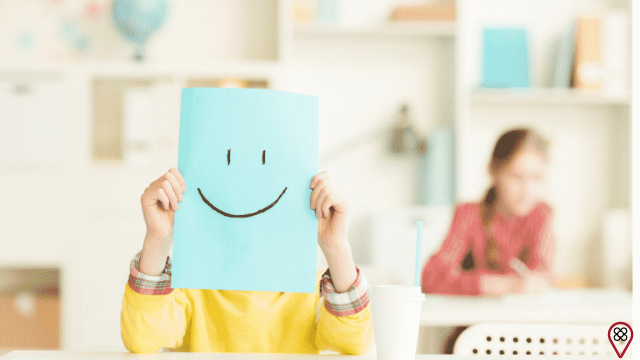Oh! Such happiness… A luxury item for some, a simple path for others. Would you really know if you are happy? Or, at least, do you know what happiness is? Is she in the little things or is it basically unattainable?
There are many questions surrounding happiness. And because it is something subjective, drawing up a single definition would, perhaps, be an inglorious task. But we tried. And using several references to deal with the subject, we have brought you content that you will love to go through, in order to find several paths that will shed some light on this “butterfly” that we are chasing so much in the forest of life.
Here's what happiness means...
happiness for buddhism
For Buddhists, happiness resides in the now, in the moment when life happens. In the ability to enjoy the present. It is in knowing – and accepting – that things are impermanent. Living in the present is what contributes to the construction of our happiness.
But it also goes a little further than that. It is related to our empathy with all beings around us. It is not an end, but a means, since it is not something we “find”, but rather we practice. That's why we usually say it's inside us, not outside.

However, it is not a mere life choice, but a habit that must be cultivated, practiced and shared. This requires us to bring together healthy and harmonious living conditions, both physically and mentally.
Buddhism sees balance as the path to fulfilling life. And full life is something that is related to happiness. First of all, we need to understand that suffering exists and that it is not a mere work of chance, but it does not last forever and its end occurs through the balance of life.
happiness for philosophy
There were several philosophers who endeavored to study and “dissect” happiness. Obviously they did not reach a consensus, as each had their own point of view, based on their own investigations.
Epicurus saw happiness in the satisfaction of desires. For Plato, those who are moral are the only ones capable of being truly happy. On the other hand, those who abuse power become slaves of their will, unable, therefore, to become free and happy.
Socrates saw happiness associated with right and just conduct. For Pirro de Élis, in turn, happiness would be linked to tranquility of mind, to the absence of disturbances (known as ataraxia).

For Aristotle, one of the most respected and studied Greek philosophers, this feeling went beyond the general sense. In this way, we have a more structured view of what happiness is for Aristotle.
Happiness, according to Plato's disciple, resides in the activity, virtue and ethics, necessary for a person to fit into this feeling. Achieving virtue consists in asking yourself “What should I be?”, not “What should I do?”. And in the absence of this moral quality, man is left with mere contentment.
happiness for religions
The concept of happiness really gives "rag for the sleeve". This feeling travels through the most diverse spheres. One of them is religion. What would be the link between happiness and religion? Could one be the way to the other?
According to a 2020 Datafolha survey, almost 90% of Spanish people have some religion. But it doesn't necessarily mean that the same percentage is happy. Still, attachment to an official religion appears to be related to increased happiness and well-being.
Having a religion gives people the feeling that they are respected and considered. Not to mention that moments of prayer, meditation or even silence to feel the presence of the representative divinity bring relief.
The figure of God also brings the idea of support to face the adversities of life, helps to better understand the challenges, allowing us to face them with more gratitude and less anxiety. Furthermore, every religion evokes in its follower a meaning for life. Religion, in general, promotes the construction of happy moments.
But on the other hand…
There has been an increase in the number of people who do not adhere to a formal religion., without, however, abandoning the faith or its connection with religious values. These people just see no need for intermediaries to practice their beliefs.
They are the declared “no religion”. Some of them even feel happier and more connected to others than when they belonged to an institutionalized religion.
happiness in numbers
Although there is a massive portion of the population that fits a religion, added to a small portion without religion, but with faith, lately the number of people who say they are happy does not follow this mass.
A Global Happiness survey conducted in 2020 showed that 63% of the population consider themselves happy (up from 61% in 2019). The biggest peak of happiness so far in the country was in 2013, when 81% of Spanish people declared themselves happy.

It is obvious that these surveys were carried out during a pandemic period, which clearly affected the entire planet in this regard. And the threat of the coronavirus has shaken our position in the world ranking of happiness: the 2021 World Happiness Report (WHR) study showed that covid-19 caused España to drop 12 positions on this list – in 2019, we were in 29th place ; in 2020, we moved to the 41st position.
About this atypical factor, we are still lifting and dusting off, catching our breath and gathering the pieces to resume our search for better and happier days. But this, we have to agree, is a work that the whole world is undertaking. Some countries more easily, others not so much.
How to be happier?
Disregarding the issue of the pandemic and analyzing the general picture, the question remains: what should we do to be happier? Does happiness come from getting things or, as Buddhism claims, is it a practice that should be taken as a routine, like brushing your teeth to prevent cavities?
We know that happiness improves our well-being globally – physical, mental and spiritual. Therefore, the search for this feeling goes beyond mere satisfaction; it has to do with maintaining our health and preventing disease.
And you can “learn” to be happy, yes! So says a study published by the University of Trento (Italy) in “Frontiers in Psychology”. We can learn to increase our well-being and, with that, achieve the long-awaited happiness.
But happiness, for the authors of this study, has to do with a combination of factors – among them a high degree of satisfaction with life, personal growth, ideal psychological conditions and a sense of autonomy. These are the bases for building the idea of happiness.
In this study, the researchers created a program that combines psychology, neuroscience and philosophy aimed at stimulating positive emotions and inhibiting emotional dysfunctions such as anxiety and stress.

The focus of this work was to associate happiness with the development of inner balance, with theoretical and practical classes that involved meditation, exercises based on various traditions, including Buddhist ones, and even the habit of writing journals.
The results were quite positive, bringing an increase in the perception of well-being, self-awareness and emotional self-regulation, as well as a considerable reduction in anxiety, stress and negative thoughts.
Being happy is easier than it looks
There are many other studies on happiness and also on how to achieve this state of mind. But the one we mentioned brought a holistic approach that brings together actions with which we are already familiar. We just need to put them into practice, since happiness is, in itself, an exercise.
This shows that being happy is less complex than it seems. Although it is a condition with some subjective bias, there are objective things that make us more likely to be happy. The first of these, which we have already mentioned, is balance, advocated by Buddhism and supported by Italian research.
we already know that gratitude, volunteering, meditation, forgiveness and self-love are also a path to happiness. Sleeping well, sunbathing and exercising also improve our physical and mental condition, leading to a balance, which leads to a feeling of joy and satisfaction. And so it becomes a vicious circle, because being happy gives you courage and breath to take care of yourself.
Another important issue is stop creating expectations for everything. Letting things flow and knowing that not everything can be controlled (in fact, practically nothing can) also unties us, unties us, and freedom is also a path to happiness.
accept the changes (again, Buddhism teaching us about the impermanence of things) also frees us from suffering. And, confirmed by science, 40% of our ability to be happy is associated with the power of change (According to Sonja Lyubomirsky, a researcher at the University of California.
You may also like
- Understand that being happy is relative
- Discover the Dalai Lama's Guide to Happiness
- Identify the 5 pillars of happiness
Anyway, and without this cliché of self-help that doesn't work, happiness is, yes, within us. But she is not a box with several treasures kept. She is our first step, she is the path we walk every day. It's like eating, bathing, brushing your teeth, studying… It requires routine, habit and frequency. Happiness is like breathing: you can never stop practicing.

























